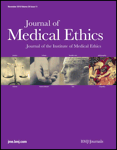 About two months ago, we posted an item on a curious retraction as the first installment in our Best of Retractions series. In the notice of the retraction in Agricultural Water Management, the editor wrote:
About two months ago, we posted an item on a curious retraction as the first installment in our Best of Retractions series. In the notice of the retraction in Agricultural Water Management, the editor wrote:
Reason: During the second revision of the manuscript, the authors modified Figure 1 (changing the label from “Israel” to “Historical Palestine”), apparently with the goal of inserting a political statement into a scientific journal article. The authors did not inform the editors or the publisher of this change in their manuscript. As such, the authors have not lived up to the standards of trust and integrity that form the foundation of the peer-review process. The Editors-in-Chief take a very strong view on this matter and, hence, the retraction of the article from publication in Agricultural Water Management.
As Pieter van der Zaag, one of the paper’s authors informed us over the weekend in a comment on that post, however, the phrase “apparently with the goal of inserting a political statement into a scientific journal article” has now been removed from the notice. We asked van der Zaag, of the UNESCO-IHE Institute for Water Education, for some more information. Here are his comments: Continue reading Update on a Best Of retraction: Elsevier edits notice suggesting renaming Israel “historical Palestine” was political








